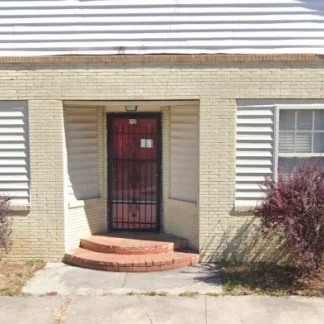AA - Alcoholics Anonymous - Blount County Group
AA – Alcoholics Anonymous – Blount County Group is a non-profit rehab located in...
House of Miracles is a recovery living house for women. Their goal is to help women with substance abuse issues build a strong recovery foundation. House of Miracles is located in Alcoa, Tennessee.
Transformation is the heartbeat of the House of Miracles. Before the House of Miracles itself was transformed into a residential recovery center for chemically dependent women, it was an infamous bar and drug house. Now, women who enter the House of Miracles have the opportunity to transform their lives from the pain and suffering of active addiction to freedom from mood-altering substances.
The tools and resources offered by the House of MIracles include a safe and drug-free environment, personal acceptance and support from the staff, honest feedback from the staff and fellow residents, support of other women, practice of the 12-step spiritual recovery model, responsibility and self-support, education and guidance.
Contact us for more information: (865) 567-9839

Connect with House of Miracles by calling their admissions team directly.
(865) 567-9839 Website Get DirectionsExperiential therapy is a form of therapy in which clients are encouraged to surface and work through subconscious issues by engaging in real-time experiences. Experiential therapy departs from traditional talk therapy by involving the body, and having clients engage in activities, movements, and physical and emotional expression. This can involve role-play or using props (which can include other people). Experiential therapy can help people process trauma, memories, and emotion quickly, deeply, and in a lasting fashion, leading to substantial and impactful healing.
Group therapy is any therapeutic work that happens in a group (not one-on-one). There are a number of different group therapy modalities, including support groups, experiential therapy, psycho-education, and more. Group therapy involves treatment as well as processing interaction between group members.
In individual therapy, a patient meets one-on-one with a trained psychologist or counselor. Therapy is a pivotal part of effective substance abuse treatment, as it often covers root causes of addiction, including challenges faced by the patient in their social, family, and work/school life.
Life skills trainings involve all the skills a person must have in order to function successfully in the world. These include time management, career guidance, money management, and effective communication. Truly successful addiction recovery is based on the ability to not only live substance-free, but to thrive. Life skills teaches the practical necessities of functioning in society, which sets clients up for success in life, and therefore sobriety.
Group therapy is any therapeutic work that happens in a group (not one-on-one). There are a number of different group therapy modalities, including support groups, experiential therapy, psycho-education, and more. Group therapy involves treatment as well as processing interaction between group members.
In individual therapy, a patient meets one-on-one with a trained psychologist or counselor. Therapy is a pivotal part of effective substance abuse treatment, as it often covers root causes of addiction, including challenges faced by the patient in their social, family, and work/school life.
Life skills trainings involve all the skills a person must have in order to function successfully in the world. These include time management, career guidance, money management, and effective communication. Truly successful addiction recovery is based on the ability to not only live substance-free, but to thrive. Life skills teaches the practical necessities of functioning in society, which sets clients up for success in life, and therefore sobriety.
In individual therapy, a patient meets one-on-one with a trained psychologist or counselor. Therapy is a pivotal part of effective substance abuse treatment, as it often covers root causes of addiction, including challenges faced by the patient in their social, family, and work/school life.
Life skills trainings involve all the skills a person must have in order to function successfully in the world. These include time management, career guidance, money management, and effective communication. Truly successful addiction recovery is based on the ability to not only live substance-free, but to thrive. Life skills teaches the practical necessities of functioning in society, which sets clients up for success in life, and therefore sobriety.
Life skills trainings involve all the skills a person must have in order to function successfully in the world. These include time management, career guidance, money management, and effective communication. Truly successful addiction recovery is based on the ability to not only live substance-free, but to thrive. Life skills teaches the practical necessities of functioning in society, which sets clients up for success in life, and therefore sobriety.
AA – Alcoholics Anonymous – Blount County Group is a non-profit rehab located in...
Helen Ross McNabb Center - Blount County Community Enrichment Annex is located i...
Hallmark Rehabilitation Services is a private rehab located in Maryville, Tennes...
Cherokee Health Systems is a non-profit organization that specializes in providi...